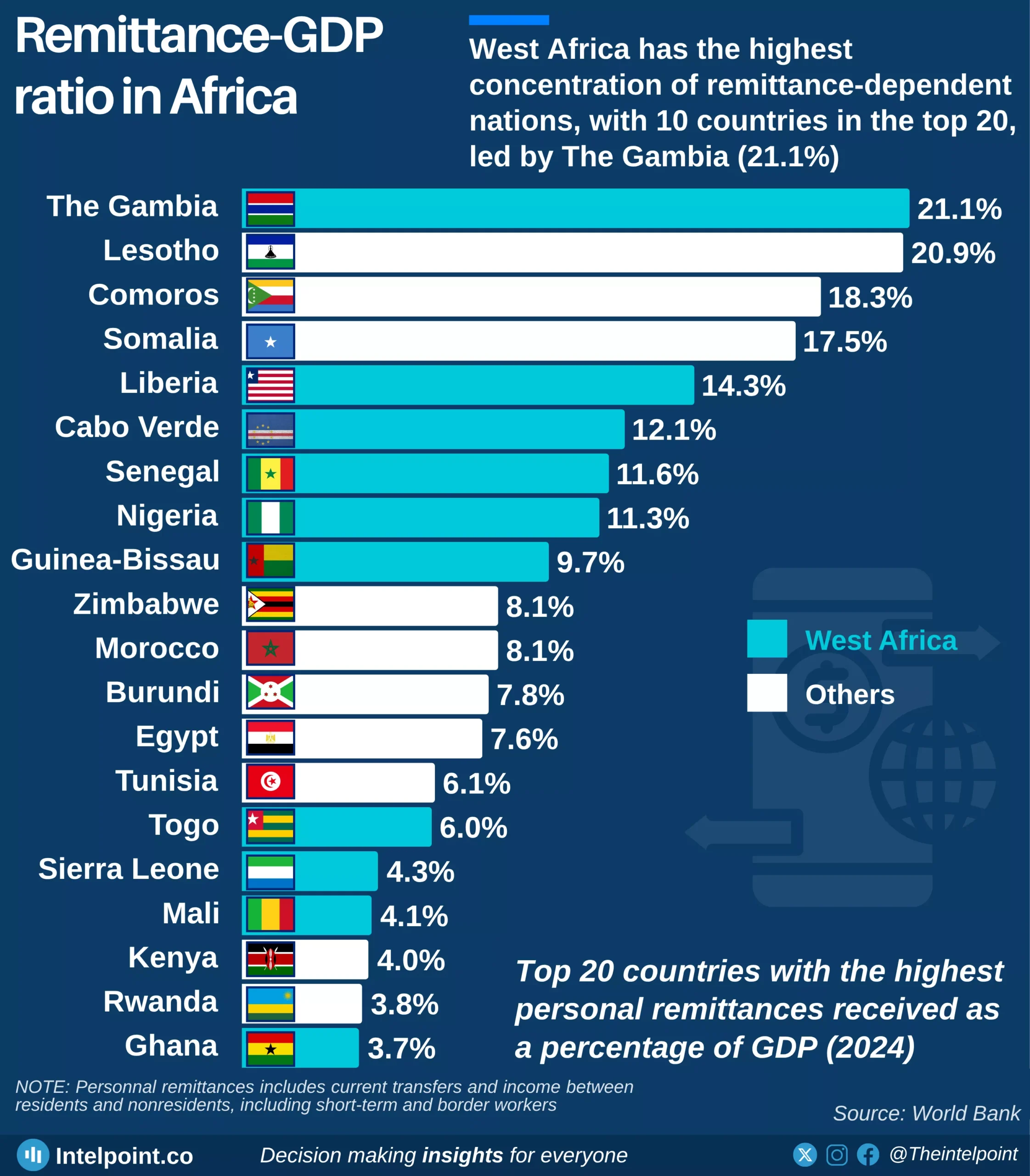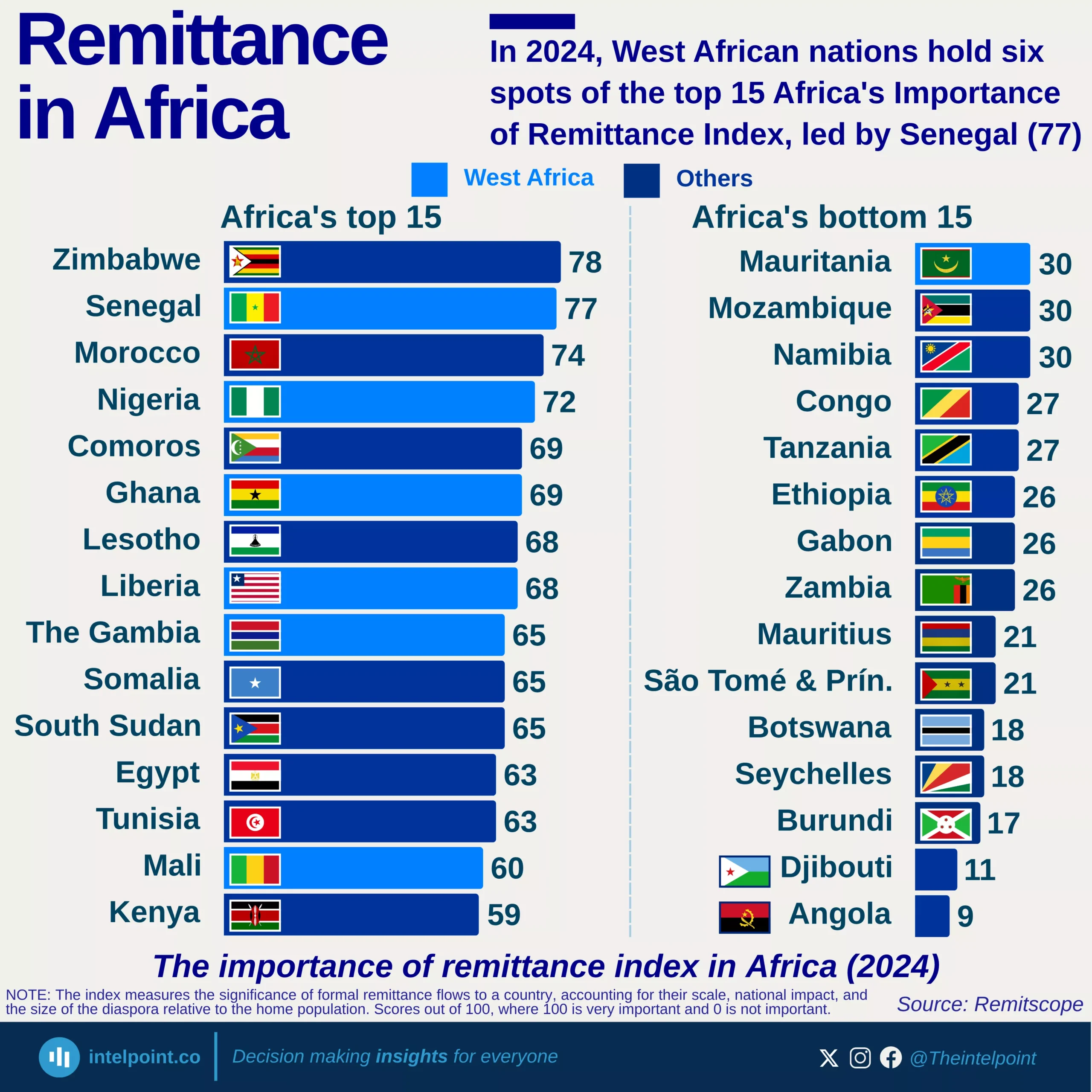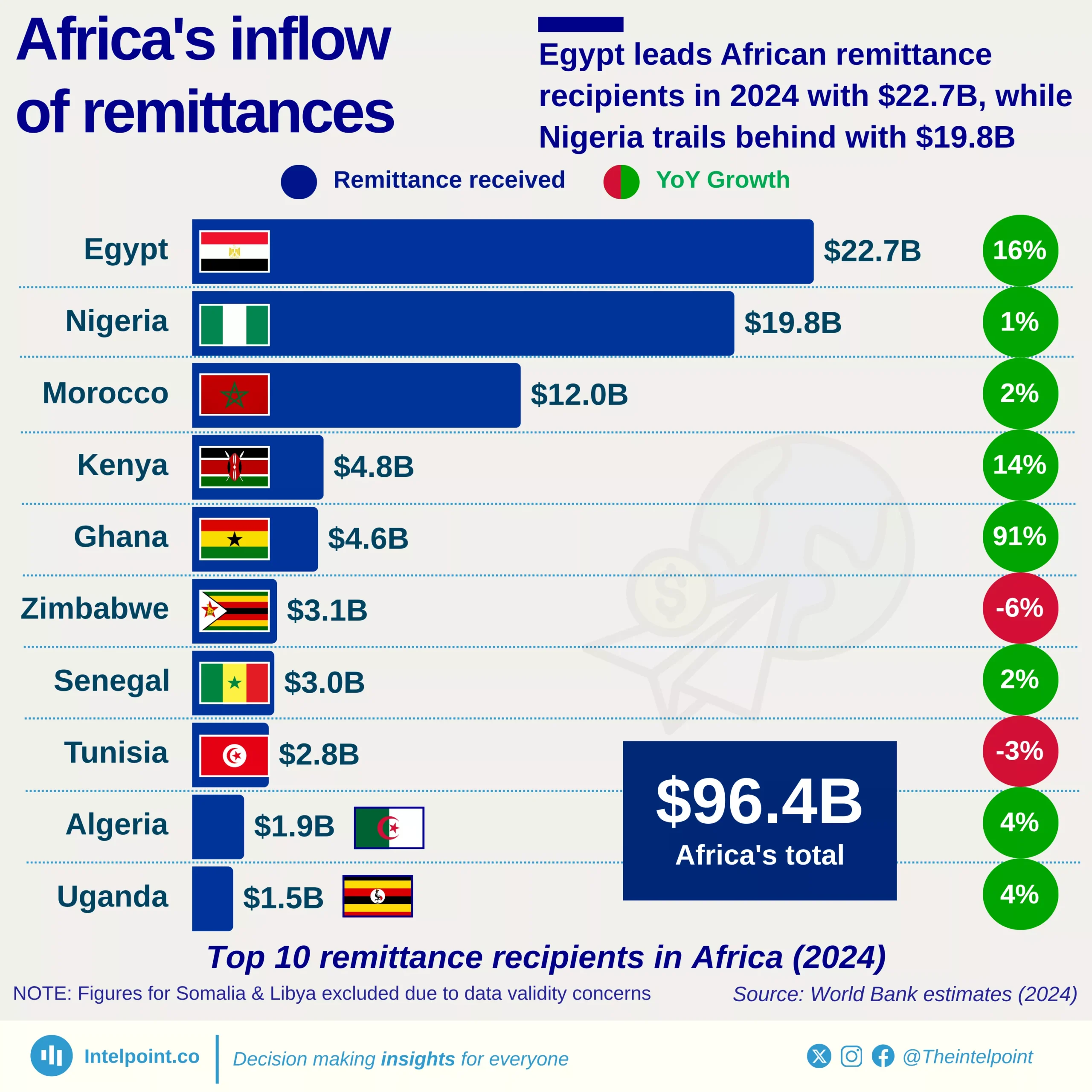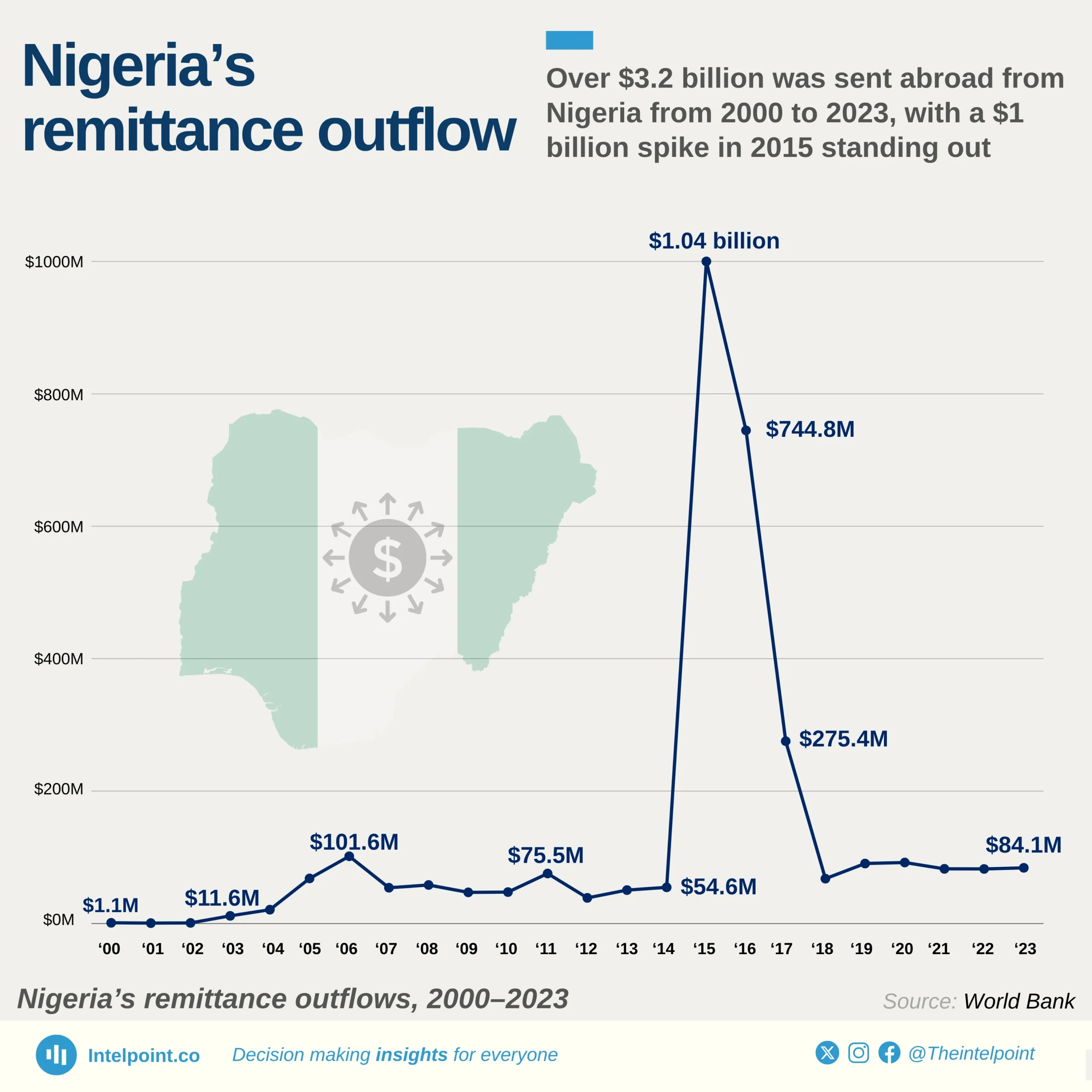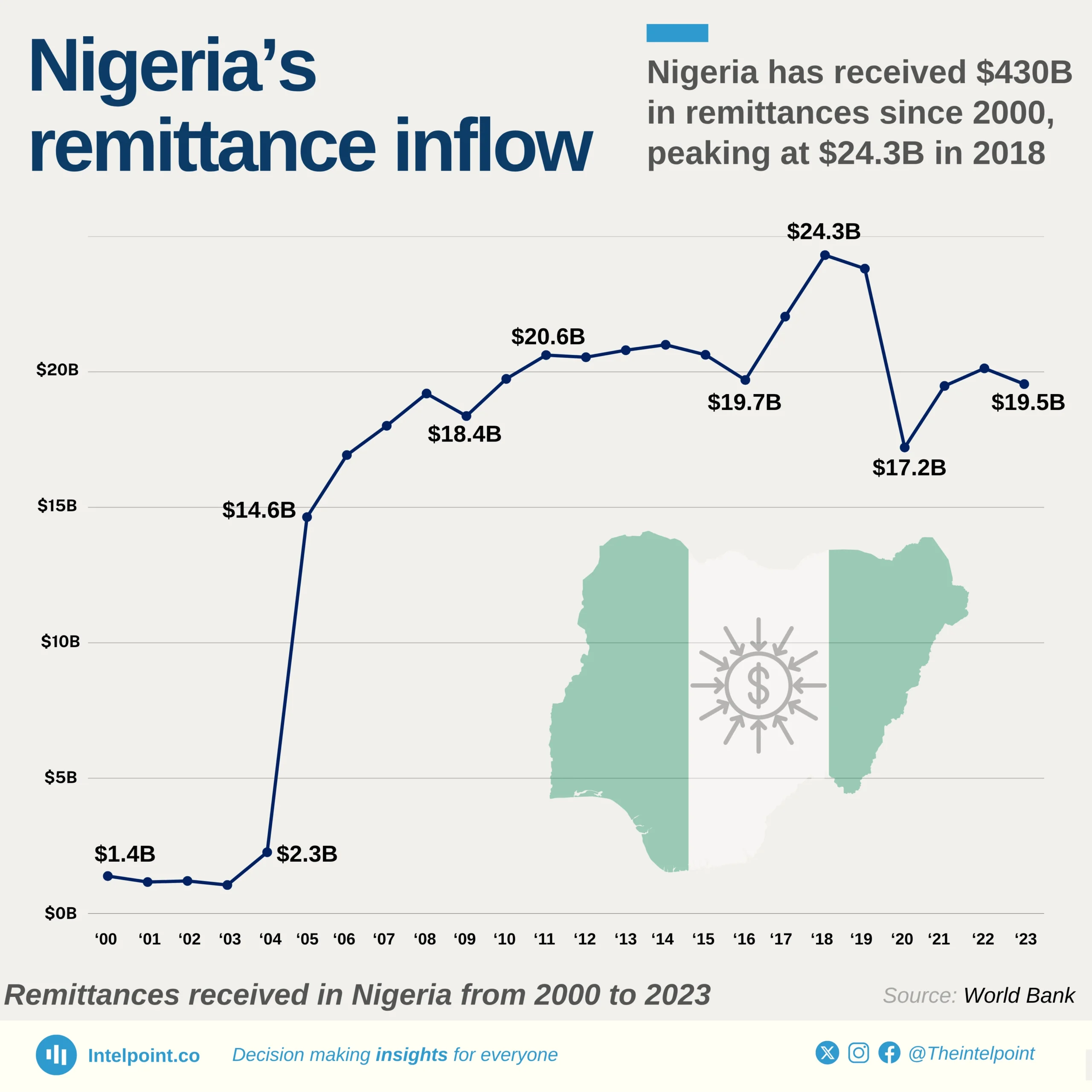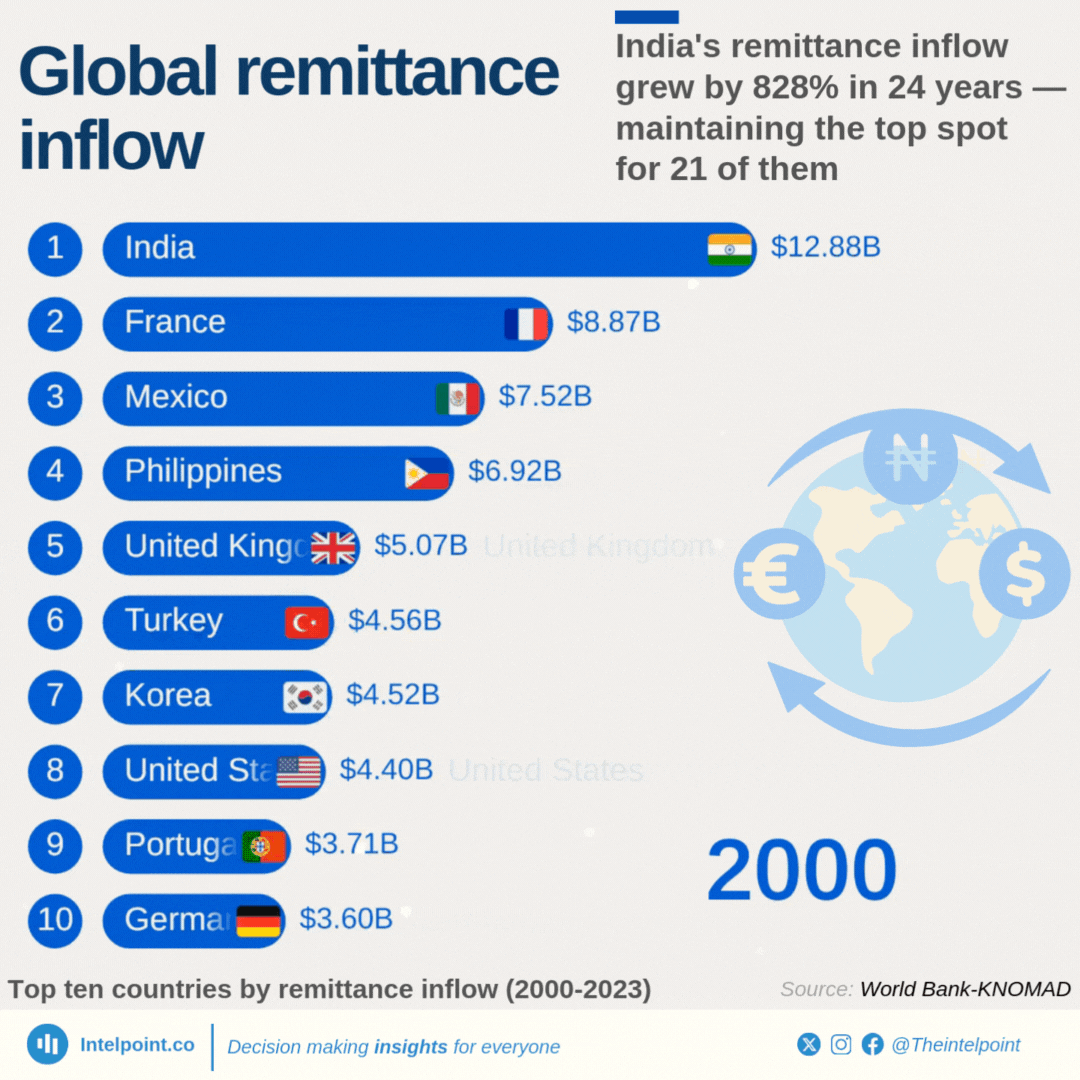Africa's remittance inflow nearly reached $100 billion in 2021, driven by contributions from Nigeria, Egypt, and Morocco, the top recipients on the continent.
Growing from $9.7 billion in 2000 to $97.6 billion in 2021, highlights the crucial role of the African diaspora.
